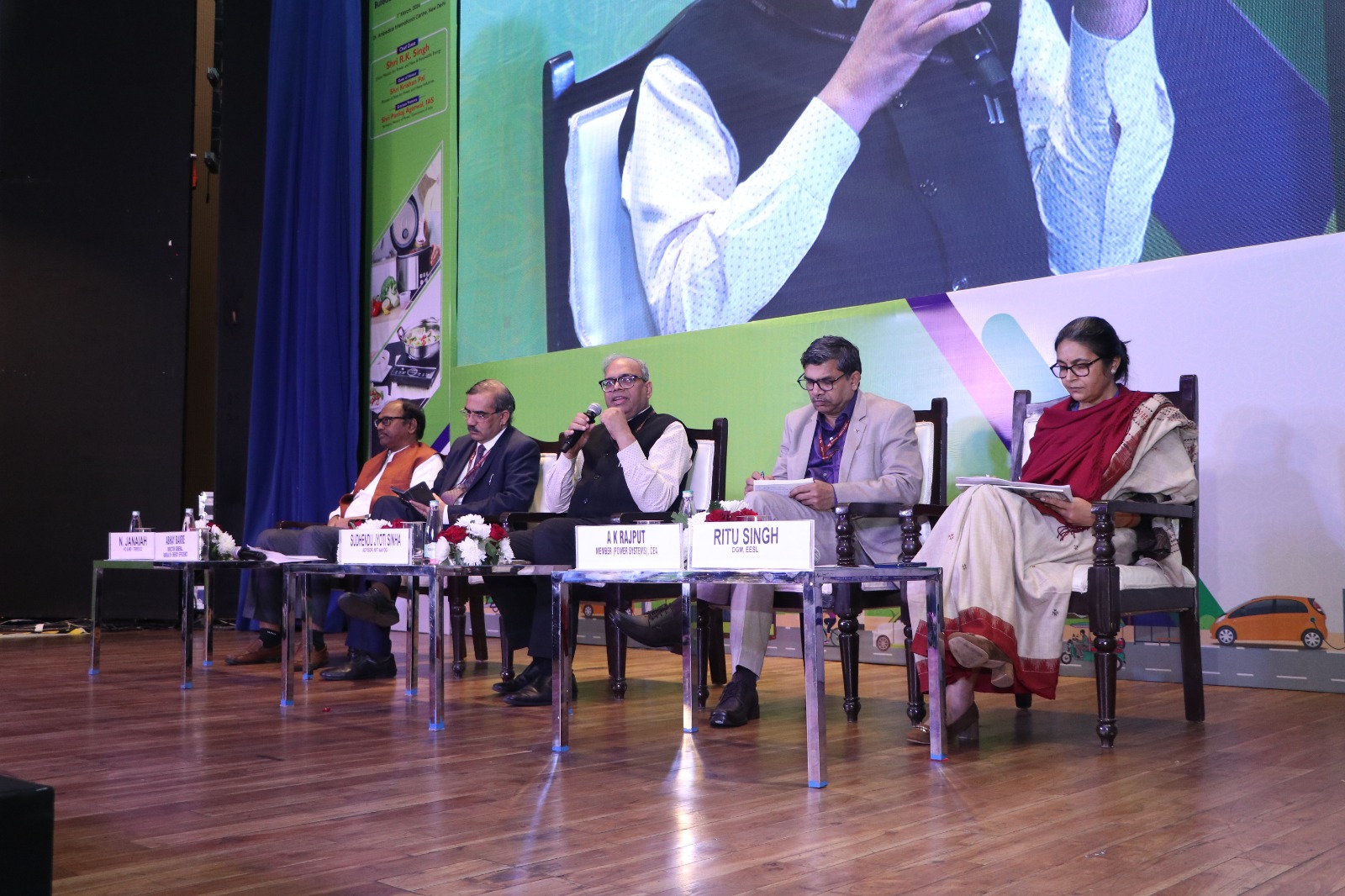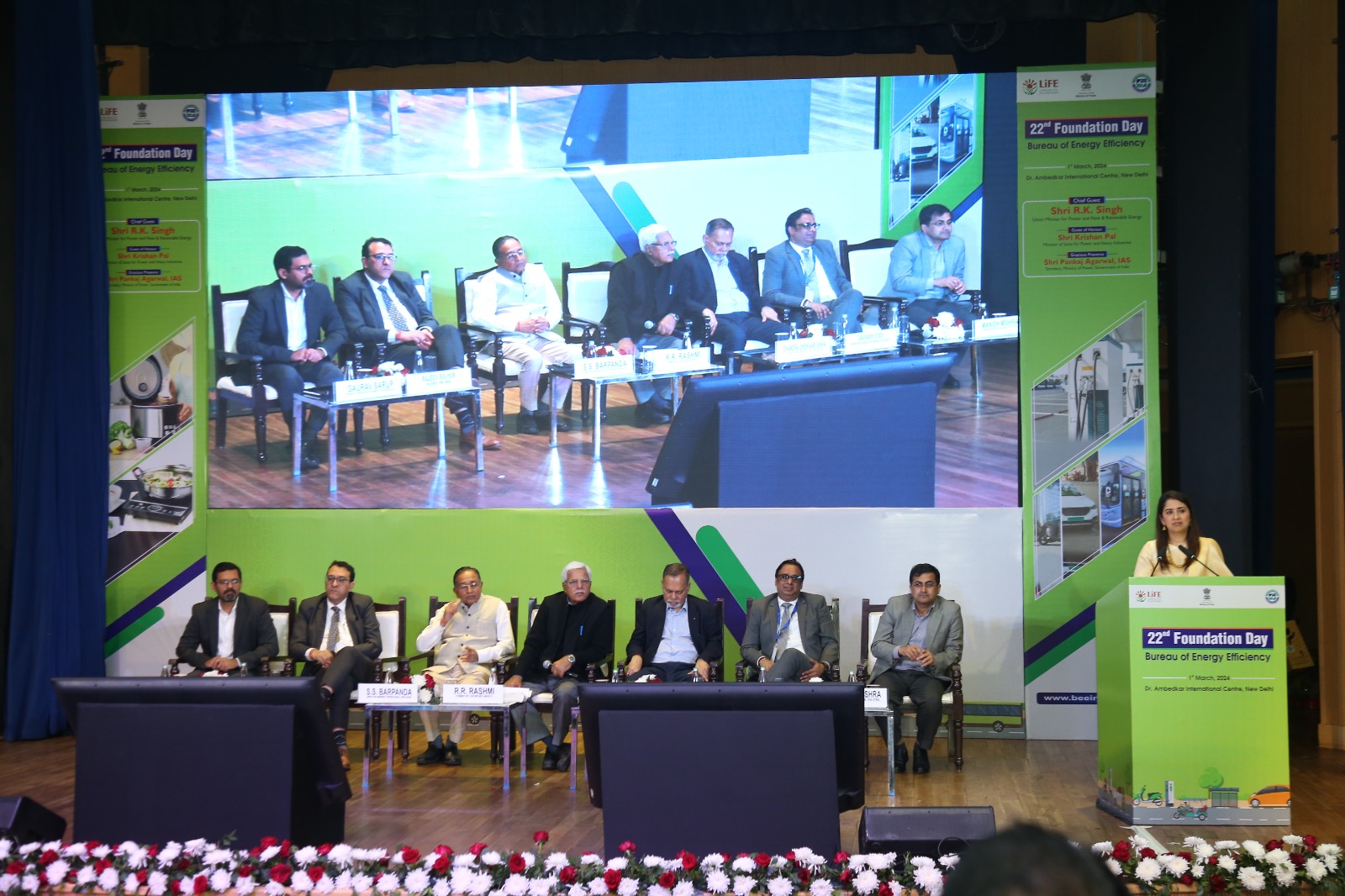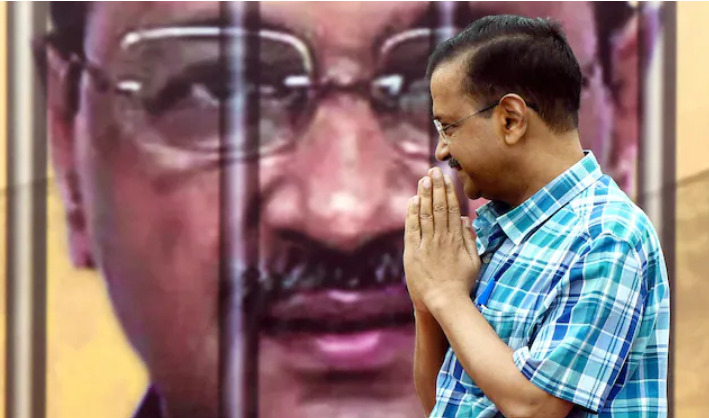The Bureau of Energy Efficiency (BEE) marked its 22nd anniversary with a momentous event themed “Energy Transition through Electrification and Decarbonization in India.” Held in New Delhi, the event served as a significant platform for government and industry stakeholders to engage in crucial discussions charting the course for India’s energy future.
 The anniversary celebration was marked by several key highlights:
The anniversary celebration was marked by several key highlights:
- Commendation and Recognition: Union Power and New & Renewable Energy Minister, Shri R. K. Singh, lauded BEE’s innovative programs and their critical role in reducing the nation’s carbon footprint. He specifically acknowledged BEE’s instrumental contribution in achieving India’s Nationally Determined Contribution (NDC) target of reducing the emission intensity of the GDP 11 years ahead of schedule.
- Program Launches: The Minister further bolstered BEE’s efforts by launching two new programs: standards and labeling for packaged boilers and commercial beverage coolers, and the fifth edition of the State Energy Efficiency Index. These initiatives aim to promote energy-efficient equipment and practices across various sectors.
- Promoting Sustainable Solutions: An exhibition showcasing electric mobility and cooking solutions served as a platform to raise awareness and encourage the adoption of sustainable alternatives in everyday life.
A prominent theme of the event was the exploration of strategies to accelerate the transition towards electric mobility (e-mobility) in the transport sector. The panel discussion on this topic yielded several key insights:
- Nationwide EV Policy: Recognizing the progress made by individual states, with 33 out of 36 having formulated their own EV policies, the discussion emphasized the need for a cohesive national approach. Collaboration between BEE and NITI Aayog was proposed for the development of a model EV policy to facilitate nationwide adoption and ensure consistency across states.
- Enabling Factors for Success: Panelists identified critical factors for the successful implementation of e-mobility, including:
- Affordability: Ensuring cost-effective electric vehicles and accessible charging infrastructure is crucial to encourage widespread adoption, particularly among budget-conscious consumers. Financial incentives for EV users and manufacturers, along with measures to promote battery swapping and recycling, were also discussed as potential strategies to enhance affordability.
- Policy Support: Supportive government policies, including tax breaks, subsidies for charging infrastructure development, and skill development programs for the EV workforce, are essential to creating a conducive environment for the growth of the e-mobility sector.
- Standardization: Implementing robust quality and safety standards for e-mobility products, encompassing batteries, charging equipment, and vehicles, is vital to ensure consumer confidence and promote the long-term sustainability of the sector.
- Beyond Cars: The discussion acknowledged the potential of micro-mobility solutions like electric bicycles and scooters, particularly in urban and rural areas, to contribute significantly to reducing emissions and promoting sustainable transportation options. Additionally, the potential for electric buses and three-wheelers to address public transportation needs and reduce dependence on fossil fuels was explored.
- Strategic Planning and Openness: The importance of strategic planning for resource allocation and infrastructure development, including establishing a nationwide network of charging stations, was highlighted. Additionally, embracing alternative technologies like hydrogen fuel cells for heavy-duty vehicles and exploring battery-swapping technologies were acknowledged as potential avenues for future exploration.
Another key discussion centred on the potential of the Indian Carbon Market (ICM) to accelerate decarbonization efforts. This session provided valuable insights into the current state of the market and ongoing international negotiations under the Paris Agreement, specifically Article 6.4, which facilitates cooperation between countries in implementing emissions reduction strategies.




